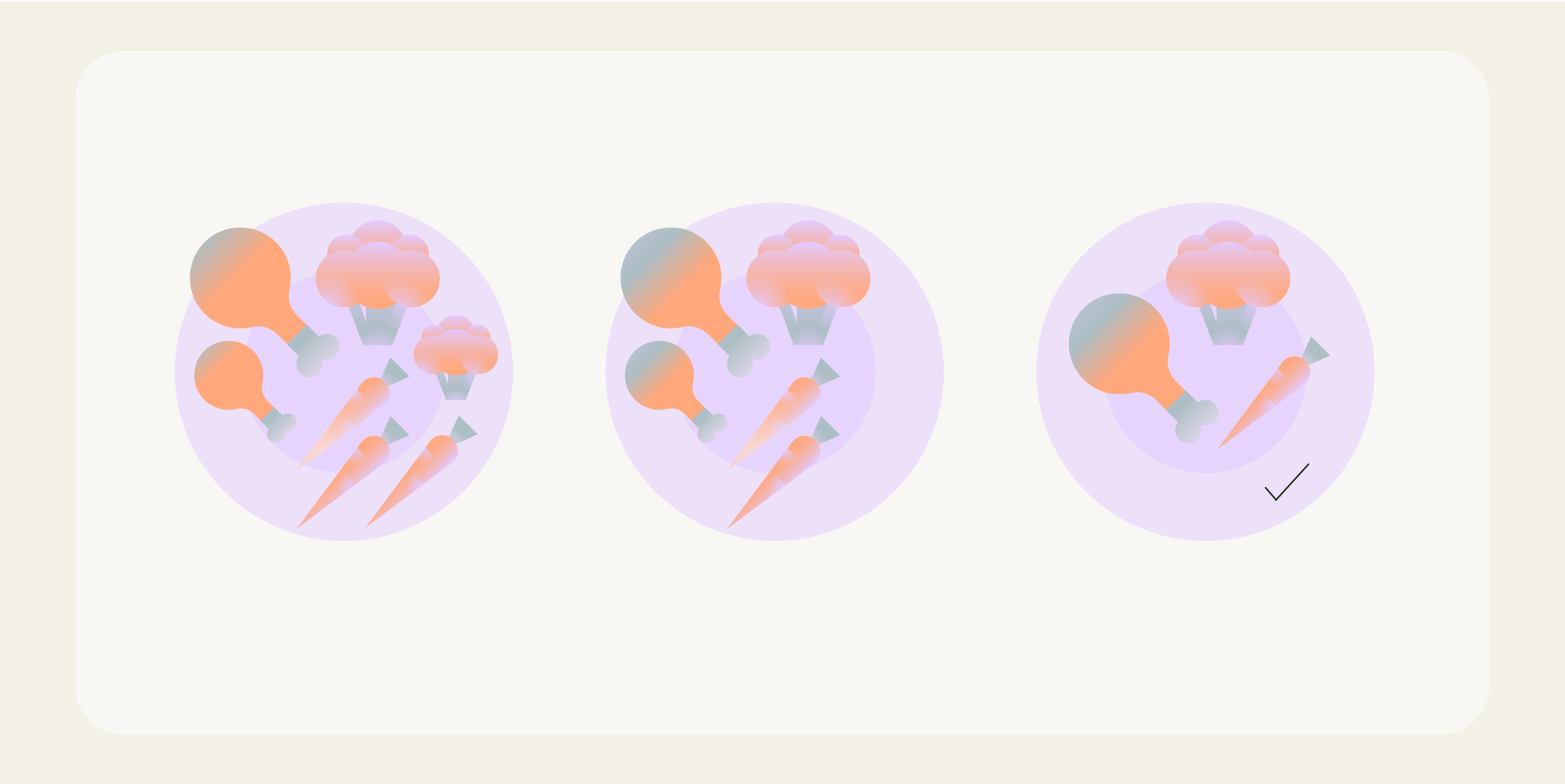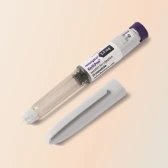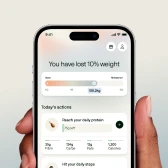Mounjaro works by making you feel full. And it can be very effective; after using it for at least a year, you could lose up to 22.5% of your starting weight.
But if you’re taking it and still find yourself craving comfort foods, you might wonder: “Why am I still feeling hungry on Mounjaro?”
Mounjaro weight loss injections are designed to curb your appetite, but they do so gradually. Most people will start to notice their effects within a few days to a couple of weeks.
Here’s the lowdown on how long it can take for Mounjaro to suppress your appetite.

How does Mounjaro work to reduce appetite?
But first: here’s a quick refresher on how Mounjaro works.
It makes you feel full by acting like two of your body’s hunger hormones, GLP-1 and GIP. This slows down your digestion (helping you stay fuller for longer) and sends signals to the brain to help keep cravings at bay.
Other appetite suppressants, such as Saxenda and Wegovy weight loss injections, have similar effects.
Your appetite will dial down over time rather than being totally gone from one day to the next. By the way: Mounjaro does not completely erase your appetite—it just reduces it.
When does appetite suppression start with Mounjaro?
But how quickly does Mounjaro suppress appetite? Some people notice changes within their first week or two. But that’s not always the case.
The gradual effect of the medicine is due to how it's taken. Everyone starts Mounjaro on the lowest dose (2.5mg), unless you are switching from another weight loss medication. If you’re tolerating it well, your dose increases every four weeks until you reach your maintenance dose (when Mounjaro has the effect we want it to without causing unmanageable side effects).
This is so your body can adjust to the medicine and handle higher strengths eventually. But it also means that Mounjaro has less of an effect during those first few weeks.
Plus, everyone reacts differently to medicine. Your metabolism, diet, health and medical history can all factor in here, too.
Why am I still hungry on Mounjaro?
There are a few possible explanations for feeling hungry during your Mounjaro journey.
It’s too early
Still hungry on Mounjaro 2.5mg? That’s the lowest strength of the medicine, so it will have less of an effect. You may see more of an impact as you gradually move up to higher doses.
Your dose might be too low
Okay, but why am I still hungry on Mounjaro 5mg (the second-lowest dose)?
For some people, lower doses like 5mg might not be strong enough for the medicine to have the effect we want it to. If you aren't experiencing any difficult side effects, it may be helpful to increase your dose.
Your diet
If you reach for foods that won’t fill you up—like those high in added sugar—you might find yourself wanting between meals, even while taking Mounjaro. Instead, opt for foods high in fibre (fruits, vegetables, whole grains) and sources of lean protein (chicken, tofu, fish). These foods support weight loss because they’re nutritious and filling while being lower in calories.
Emotional hunger
Sometimes, we eat because of how we feel rather than because we’re physically hungry. For example, if you’re upset or if you’re happy and want to celebrate. You might find yourself responding to these emotional triggers even when you’re on Mounjaro.
Other medications or medical conditions
Certain medications or medical conditions can also impact your appetite. For instance, some people find they feel hungrier on some forms of antidepressants. Long-term steroid medicines can also sometimes lead to weight gain.
Could Mounjaro’s appetite suppression be wearing off?
What if, after starting on the medicine, you notice Mounjaro isn’t suppressing your appetite anymore?
It might be time for you to increase your dose. The idea behind Mounjaro’s dosing schedule is for you to build a tolerance to it, so you can eventually handle higher strengths. But that also means that lower strengths can have less of an effect over time. Your provider will confirm when it’s best for you to move up.
What can I do if I’m still hungry on Mounjaro?
Cravings still bothering you? Here are some things that might help.
Review your diet
Reach for nutritious foods that fill you up. As part of our weight loss programme, our dietician will work with you to create a personalised diet plan—and our coaches will help you stick to it.
Stay hydrated and sleep well
Did you know that drinking enough water might help you feel full? Getting a good night’s rest can also help keep your appetite in check, too.
Address emotional eating
If some of your eating habits are driven by emotion, it might be helpful to address these feelings and work through them. This is something we’d recommend doing with a qualified mental health professional.
Meal planning
Planning out your meals in advance can help you stay on track with your plan. It’s also a great way to ensure you’re eating balanced plates that are filling and nutritionally dense.
Speak to your provider
Your provider is there to help! You could ask them about adjusting your dose or making changes to your lifestyle, for example.
Through our weight loss programme, you’ll get weight loss medication posted to you each month. You’ll also have access to a dedicated coach who will check in with you on the regular, plus access to our clinicians. Research shows that patients who stayed engaged with the Voy programme achieved 53% greater weight loss after four months compared to those who didn’t engage.
Find out if you’re eligible by taking our short quiz. Our clinicians will review and come back to you asap.






















